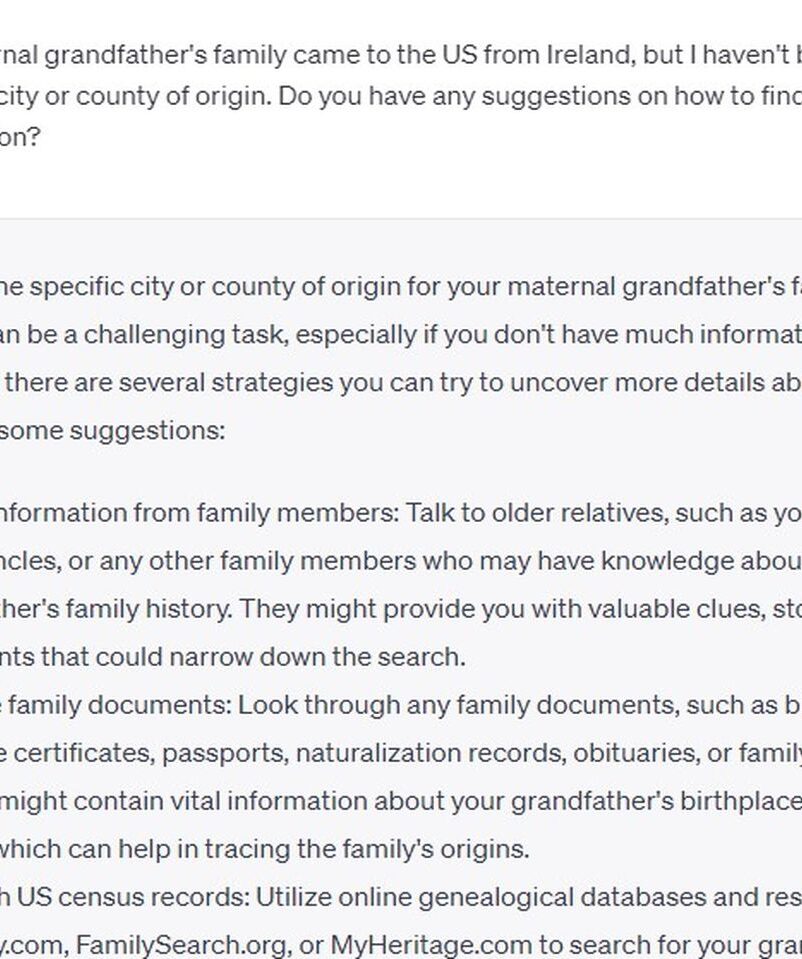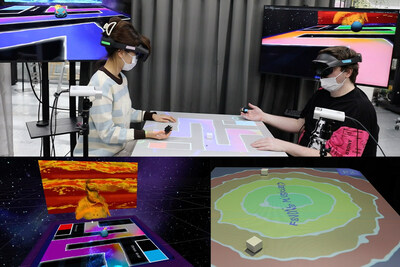
Artificial Intelligence, or AI, has been prevalent in the news, social media, and entertainment a lot lately. But what is it and what does it mean for genealogy? Let’s start with what it is. Wikipedia defines AI thusly:
…perceiving, synthesizing, and inferring information — demonstrated by computers, as opposed to intelligence displayed by humans or by other animals. “Intelligence” encompasses the ability to learn and to reason, to generalize, and to infer meaning.
We’re already used to AI. We have Netflix and Amazon algorithms that suggest new films or products based on what we’ve watched or bought previously. We don’t tend to think of that as AI, but it certainly fits the description.
And it’s also been used in genealogy. It used to be the case that optical character recognition, or OCR, software could only read printed documents. But last year the National Archives and the big database companies used AI algorithms to help transcribe handwritten 1950 Census returns when they were released.
But what can we as researchers do with AI? The answer is not much. We can’t have an AI go and fetch records online for us, or evaluate documents. Not yet, anyway.
I’ve been tooling around with ChatGPT a bit. ChatGPT is a chat “bot,” an automated piece of software that can carry on a conversation with us humans. You can ask questions and it will return an answer, in very good grammatical English. The answer will, in more cases than not, be correct.
Before tackling any genealogy questions, I asked ChatGPT if it could code a chess game in the Python programming language, write a sonnet in the style of William Shakespeare about my car, and explain baseball’s infield fly rule. It did all these things quickly and accurately, if not completely (the chess game answer gave a board setup procedure, but no logic for input or moves).
I asked ChatGPT if it could help me with some research about the Irish branch of my family and it did indeed return a thoughtful, reasonably comprehensive answer. If you feel you need some help in drafting a question for ChatGPT, you can always ask it what to ask it. You can see examples of the questions I asked, and ChatGPT’s answers here (https://tinyurl.com/ChatGPTgenealogy).
If you do use ChatGPT to assist your research, make sure to verify any answers it gives, just as you would any other resource used.
Perhaps it will be the case one day that a mouse click, or a simple statement heard by voice recognition software will be all that’s needed to compile a family tree: “Siri, please compile a family tree for me going back five generations.”
There’s no fun in that. No sense of accomplishment in putting together a long-sought ancestral link.
The proverbial brick walls will cease to exist. Or, rather, they will turn from brick to glass. Windows that can be looked through, but the information won’t be touched by human hands anymore.
That day may be a long way off, but it doesn’t mean it won’t happen.
Danny Klein is the genealogy librarian at the Jersey City Free Public Library’s New Jersey Room and a founding member of the Hudson County Genealogical and Historical Society. He can be reached at hudsongenealogy@gmail.com or @HudsonGenealogy on Twitter



